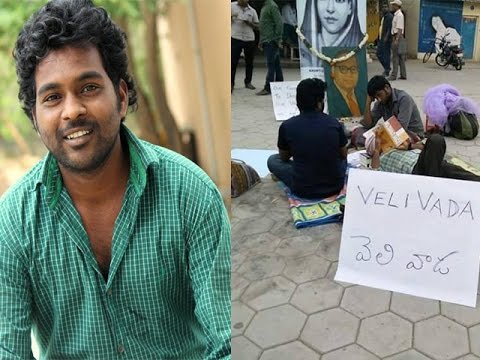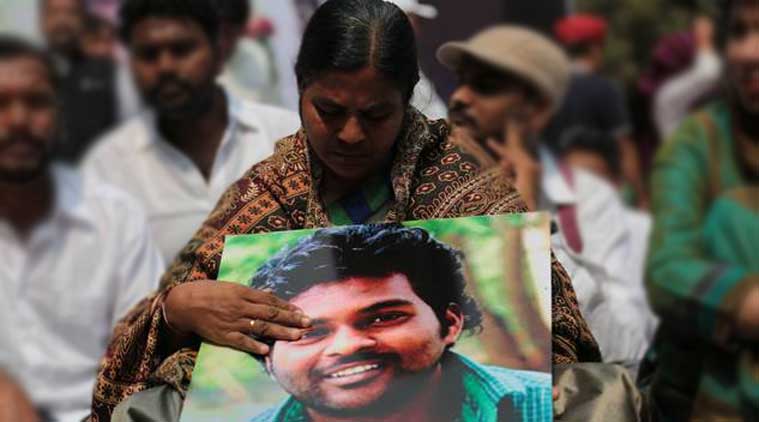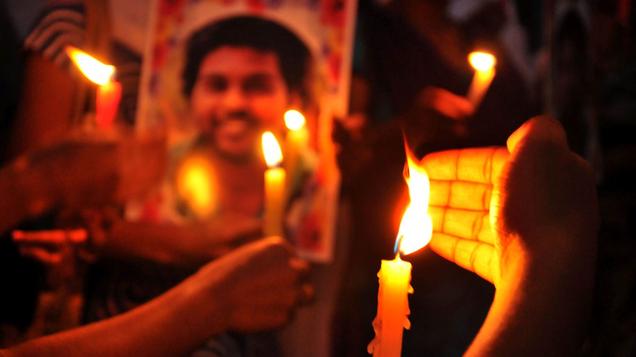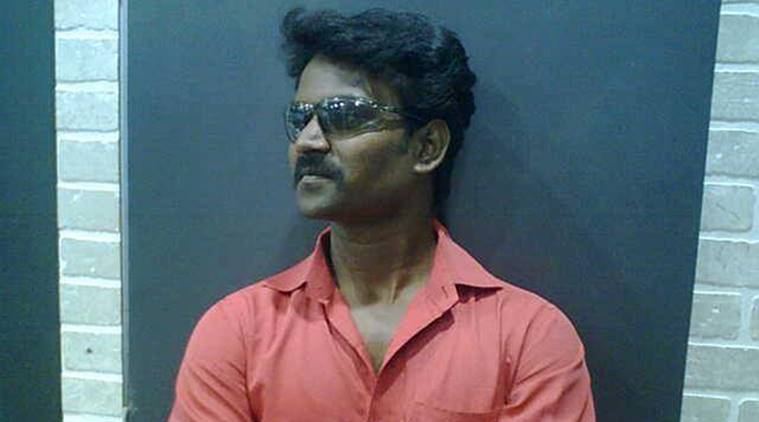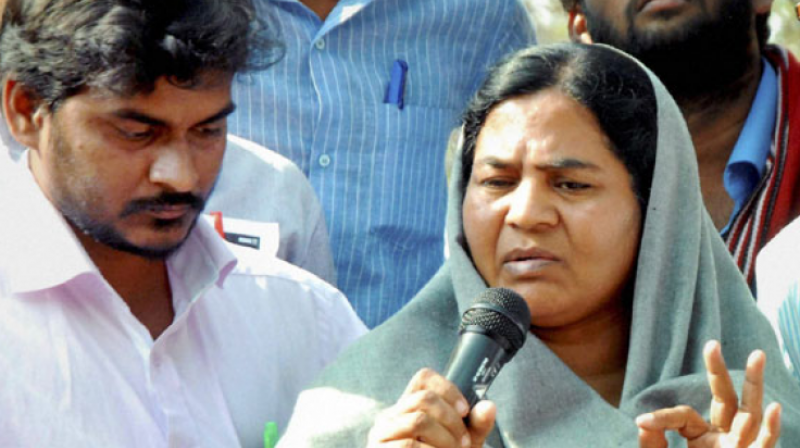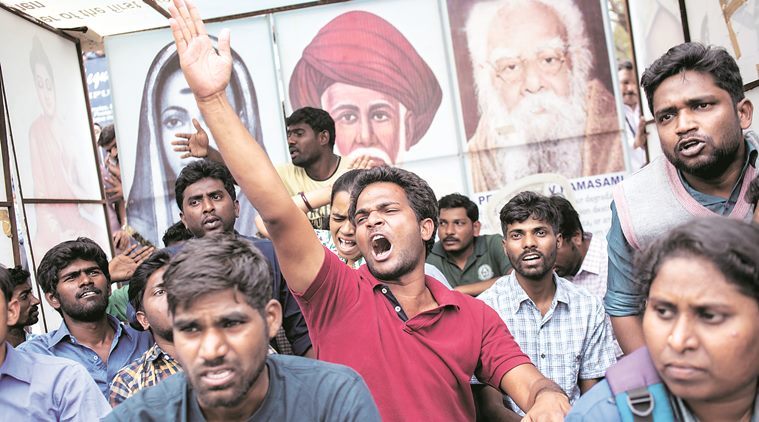
Rohith Vemula’s suicide a year ago shook the country. The circumstances of his death left no doubt that it was an institutional murder committed through continuous harassment, and not a simple suicide. It exposed how the culture of caste discrimination was alive and kicking in Indian campuses despite being outlawed by the Constitution. Though it was no secret even before Rohith killed himself, the violent end to his dreams opened up the pent up rage against caste-based discriminations quite in the same way as the notorious gang rape and murder of a girl in Delhi in 2012 unleashed an outpouring of anger against the culture of rape.
The past year without Rohith was marked with protests demanding a law criminalizing caste-based discrimination in campuses, i.e. a Rohith Act, for prosecution of those responsible for his death and so on. His first death anniversary was not going to be any different. Quite on the contrary, it was going to be a solemn moment of stopping for a moment, looking at what the protests had achieved, and charting a way forward. And, so it did, with countless protests across the country and virulent crackdowns by those responsible for pushing Rohith to the wall.
They left no stone unturned to suppress the voices seeking justice for him and denied permission for protests in the University of Hyderabad where continuous harassment by the authorities had forced Rohith to end his life. They did not think twice before apprehending his mother, brother, a leading journalist, and all others they could get their hands on when people defied the ban and protested. Hundreds of similar protests were broken down with brute force in many other towns, including Delhi, where around 300 peaceful protesters were arrested.
Alas, terrible news that emerged on the very day was lost in the chaos. Exactly a year after Rohith had killed himself, another student from a marginalized community had to end his life in another premier institution of the country. Not many seemed to even notice the death of Lokesh Meena, a third year student of IIT-Kharagpur.
The biting coincidence exposes the fact that nothing much has changed on the ground despite all the cacophony, chaos, claims, and counterclaims that ensued in the aftermath of Rohith’s suicide. Nothing much, despite the vehement protests seeking justice on one hand, and the entrenched system rewarding those behind pushing him to the extremes.
Take, for example, the fact that Prime Minister Narendra Modi, at the Indian Science Congress, 2017, presented the “Millennium Plaques Honour” to University of Hyderabad Vice-Chancellor Appa Rao Podile. He got the award despite, lo and behold, having admitted to plagiarism and having been booked for abetting Rohith’s suicide as well as under the provisions of the Scheduled Castes and Tribes (Prevention of Atrocities) Act, 1989.
Exact circumstances that led Lokesh Meena to take the extreme step are still unknown. A stinging reality stands out nonetheless: the reality that he came from a marginalized community just like Rohith. Lokesh was from an Adivasi (tribal) community, one of the few severely disadvantaged and marginalized communities of India.
That leads to the second stinging reality: students from marginalsied communities like Dalits and Adivasis account for the bulk of suicides committed in premier educational institutions of the country.
Why they are pushed to take their promising lives is also a giveaway. Thousands of articles, reports, and studies document the systemic and systematic harassment they face in these institutions. They elaborate upon the structures of violence – from emotional to physical –unleashed upon these students who have nothing to bank upon to. With the executive authorities having power to reward or punish every subordinate, in-house institutions earmarked to deal with discrimination often end up as their fiefdom and more often penalize the victims rather than support them.
In sum, the whole thing plays out in cycles. The students from marginalized communities get discriminated against. Then they have to make a choice between two equally distressing options. First is to suffer in silence, get depressed, and wish to make it out alive. Second is to stand up, approach Equal Opportunity Office, or whatever the local equivalent institutions are called, register a complaint, and continue to be even more victimized. This vicious cycle breaks many of the victims from within and, at times, forces them to commit suicide.
Further, tucked away in a single column snippet in the bottom left corner of newspapers or just below the main screens of the websites carrying them, if at all, these students are lost without even anyone registering this loss. The reason behind this is simple, as explained above; most of these struggles end up as being solitary ones waged inside the walled ghettoes that premier educational institutions have become in India. The victims have often to fight it out all alone without any support, without having anyone to even keep records if they fall.
They fail to make it to news in most cases, and some not even after they kill themselves. Take for instance, the struggle of eight Dalit students suspended by the Babasaheb Bhimrao Ambedkar University in September 2016 on the allegations of assaulting a teacher and vandalising his vehicle despite clear CCTV evidence rubbishing the same. Their suspensions arrived after they protested against attempts to dilute reservations for Dalit students in the University. Their struggle and suspension has not excited even those in civil society known for outraging.
Not all discrimination and suicide catch attention. Rohith Vemula’s suicide was not the first one by a Dalit scholar in the University of Hyderabad. He was ninth one to kill himself in a 10 year period and yet the authorities ‘failed’ to see the distressing trend at best and criminally ignored it at worst. Hyderabad University is not the sole offender or an aberration; similar reports have been received from across the country.
A documentary named ‘Death of Merit’ counted 18 suicides by Dalit students in premier educational institutions including AIIMS and IITs in a mere four years, from 2007 to 2011. The number rose to a staggering 22 by 2016; Rohith was the 23rd.
His case stirred the nation because there were people to take the case up, to fight for justice for him, and to hold those responsible accountable. But, what did even this struggle achieve? Nothing much would be the answer, if one goes by Lokesh’s suicide. Asking why and seeking answers would be natural corollary.
A simple answer to the question would be that no amount of outrage could be certain of getting justice in a system with flawed institutions to begin with. Even a cursory look at the valiant struggle of Irom Chanu Sharmila can bring this fact to the open. The Armed Forces Special Powers Act stays intact despite a 16-year long hunger strike by Sharmila and all the outrage it caused. To put it simply, outrage is no substitute for a functioning justice system that anyone and everyone, including those living on the bottom rungs of society, can approach and seek redress from.
Unfortunately that is where our struggles have failed. How many have asked and pursued the status of investigations against Vice Chancellor Appa Rao Podile and others booked for abetment of Rohith’s suicide. Where has the case reached? How many years would it take to conclude, provided it does? Would it not have created an example and deterrence had he indeed been found guilty and sentenced against future harassment of students from underprivileged communities?
Let us add to this a question over efficacy of any new law getting enacted in this fundamentally flawed system with entrenched vested interests. What if we indeed get a Rohith Act but those responsible for its implementation remain the same?
This is definitely not to say that there is anything wrong with outrage. In fact outraging can at times even help achieve justice; it did in the Jessica Lal case. However, it can only do that in an odd case or two. And India has over 3 crore cases pending. Outraging has a limit; it tires the ones outraging and sets in a fatigue unless it is the system that they are able to change.
There is an even more important question: why should a rule of law based justice system need outrage to deliver justice? Why cannot it operate as it does in a civilised world – so anyone who goes to the court is listened to? Of course, this is not to say that justice there is flawless, but then it is not a rarity like in our system, either.
Justice for Rohith would remain a distant dream until we add the struggle for justice institution reforms to all our struggles. Those who pushed him to death will keep getting rewarded despite the ongoing cases involving allegation as serious as abetment to suicide. We will keep losing Lokesh Meenas without even noticing, forget about outraging.
Samar is Programme Coordinator – Right to Food Programme Asian Legal Resource Centre / Asian Human Rights Commission, Hong Kong

